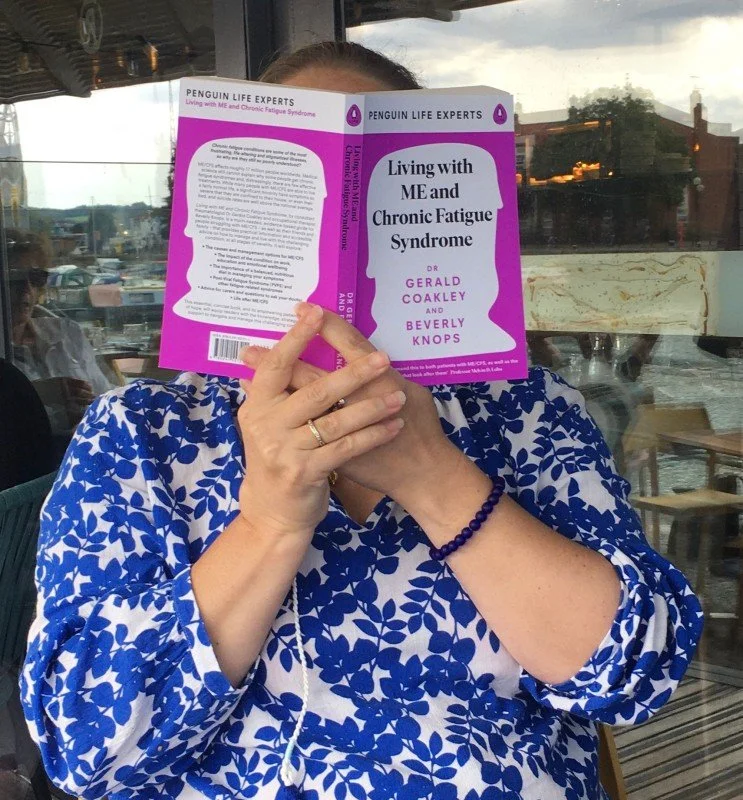
Our blog
Read the advice from our experts who work with people who have ME/CFS, Fibromyalgia, Post-Viral Fatigue, Post Covid-19 Syndrome (long Covid) or persistent pain for tips on enabling recovery and supporting wellbeing
Use our search bar to find the content you want or select a topic from the list below
- Activity
- ADHD
- Autism
- BACME
- Book review
- Burnout
- Cognitive fatigue
- Conference
- Covid
- Diet
- education
- Exercise
- Family
- Fatigue
- Fibromyalgia
- Holiday
- Living with
- Long Covid
- ME/CFS
- Mental health
- Neurodiverse burnout
- Neurodiversity
- Pain
- Pandemic
- Pleasure
- Post Covid19 syndrome
- Post viral fatigue
- Research
- SAD
- Sex
- sleep
- Stress
- Team
- Work
How do you look after yourself during the Christmas period with a chronic illness or condition?
I found myself discussing Christmas with a client last week who is already planning for her inevitable setback in January – is this unavoidable? How can you enjoy Christmas but minimise the impact?
Planning a holiday (tips and advice for travellers with Persistent Pain, and/or fatigue)
Does the very thought of planning a holiday leave you feeling exhausted? The idea of a long journey and sleeping in a different bed is enough to raise your anxiety levels before you even consider the expectations of yourself or others regarding what you will do whilst on holiday. Isn’t it supposed to be pleasurable or, at the very least, somewhat relaxing?
How persistent pain or fatigue does not mean the end of being able to sustain work…
Having a diagnosis of ME/CFS or Fibromyalgia or Long Covid is not necessarily an end to engaging with activities including working. Here one of our team shares something of her personal experience of sustaining work whilst managing fatigue symptoms aswell as many accounts from past clients who have also been supported, through our specialist programmes, to re-enter work in some capacity.
How can employers support people to sustain or return to work with fatigue? A personal example of sustaining employment following burnout.
In this article, Katherine Sewell, employed by Vitality360 in an HR role, shares her personal experience of returning to and sustaining work with long-term pain and fatigue symptoms. Vitality360 is a rehabilitation provider working to support people with persistent pain or fatigue to return to and/or sustain work. With her HR expertise alongside her lived experience of a chronic health condition, Katherine looks at some of the ways that HR departments/OH Providers/Employers can support people in a similar situation - including the use of activity management diaries, how to empower people considering capability vs capacity, and how to enable employees and employers to explore some of the issues collaboratively, utilising back to work planning.
Genius cures or paths to more confusion and anxiety?
As someone who has had ME/CFS for twenty years and counting, my heart skips an excited beat when my social media feeds alert me to a new intervention that claims it will help ease my symptoms or even lead to a full recovery like the one below! Are they worth investing in?
Here we offer our thoughts on various gadgets of this type.
National Sickie Day – just a bit of harmless fun?
Known as National Sickie Day in the UK, the first Monday of every February is statistically the day when most workers are likely to call in sick, according to research first conducted by British law firm ELAS in 2011.
Experts attribute this to a combination of gloomy weather, post-holiday blues, and seasonal illnesses. What does one of our team, who is a specialist supporting people to sustain work with long term health issues, think about this?
Greeting the new year… and working with positive habits
It’s that time of year again when I decide that the moment has come to create a list of intentions and resolutions. Once the initial momentum of a shiny, fresh new year has dissolved into the relentless greyness of January and February it can be only a matter of time before the resolutions are pretty much discarded amidst a haze of vague guilt.
Greeting the new year…
It’s that time of year again when I decide that the moment has come to create a list of intentions and resolutions. Once the initial momentum of a shiny, fresh new year has dissolved into the relentless greyness of January and February it can be only a matter of time before the resolutions are pretty much discarded amidst a haze of vague guilt.
How do you look after yourself during the Christmas period with a chronic illness or condition?
I found myself discussing Christmas with a client last week who is already planning for her inevitable setback in January – is this unavoidable? How can you enjoy Christmas but minimise the impact?
Becoming a Published Author – Beverly Knops
In the spring of 2021, I received a phone call from Dr Gerald Coakley, a Consultant Rheumatologist. I assumed he wanted to make a referral to Vitality360, but he was phoning to ask if I wanted to co-author a book. Here I write about how I got on…
Invisible Disabilities
In this blog our specialist fatigue clinician talks to three team members with pain and fatigue about how it is to have an invisible disability & the challenges this presents in relationships, how this can create misunderstandings socially and in the workplace.
Why employers need to be alert to burnout
#Burnout is a risk for employees given the stressors of the current economic climate. This article looks at risks & tips for employers & employees spotting the signs and preventing issues taking hold.
Starting university with long term pain or fatigue? 10 tips to help
Research, conducted by the University of Bristol (Collin and Cawley, 2016) shows that one in 50 16-year-olds have experienced significant, long term fatigue (more than 6 months.) Add to this the numbers of young people with other long term pain and medical conditions and we can see that the struggles of continuing education with a chronic illness are more common place than we might at first think.
Planning a holiday (tips and advice for travellers with Persistent Pain, Fibromyalgia and ME/CFS)
Does the very thought of planning a holiday leave you feeling exhausted? The thought of a long journey and sleeping in a different bed is enough to raise your anxiety levels before you even consider the expectations of yourself or others regarding what you will actually do whilst on holiday. Isn’t it supposed to be pleasurable or at the very least somewhat relaxing?
Being back at work with long-term ill health: its joys and challenges!
A combination of various factors such as persistent sleep disturbance, living under chronic and sustained stress and having chicken pox as an adult, all meant that one day when I was at work for Hilton Hotels I was suddenly utterly incapacitated by severe pain. On another occasion, I recall standing at the bottom of the stairs, unable to go up them as my whole body felt like lead.
How to support a colleague who has chronic pain
As a colleague witnessing someone in pain, It can be very difficult knowing when to help, when not to, when to offer sympathy, when not to, when to suggest ‘it may be better if you stopped doing that and rest’ and when to let your colleague just get on with it.
The importance of pleasure (Why it matters)
How many times do we hear the words ‘it’s all about balance’. ‘Balance is key’. ‘All things in moderation’. Etc etc.? In fact, if we look at the definition of ‘balance’ we see that it’s ‘a situation in which different elements are equal or in the correct proportions’. Broadly speaking we may find that our lives are split into different areas: Self care, achievement, connecting with others and enjoyment.
Explaining pain to friends and relatives (tips provided)
When you have an ongoing pain condition it can be such a struggle to talk to others about what its like to live with and what practical and emotional support they could give you.
Is fatigue the same as sleepiness? (how to tell the difference)
It is easy to make assumptions about others based on their appearance or behaviours, but do we also make assumptions about ourselves when we feel fatigued? The first thought for most people experiencing fatigue is, “I must get some more sleep”.
Get Started
Book a free 15-minute chat with us today
If what we offer sounds helpful, we will arrange an assessment
Start a rehabilitation programme that’s designed specifically for you




















